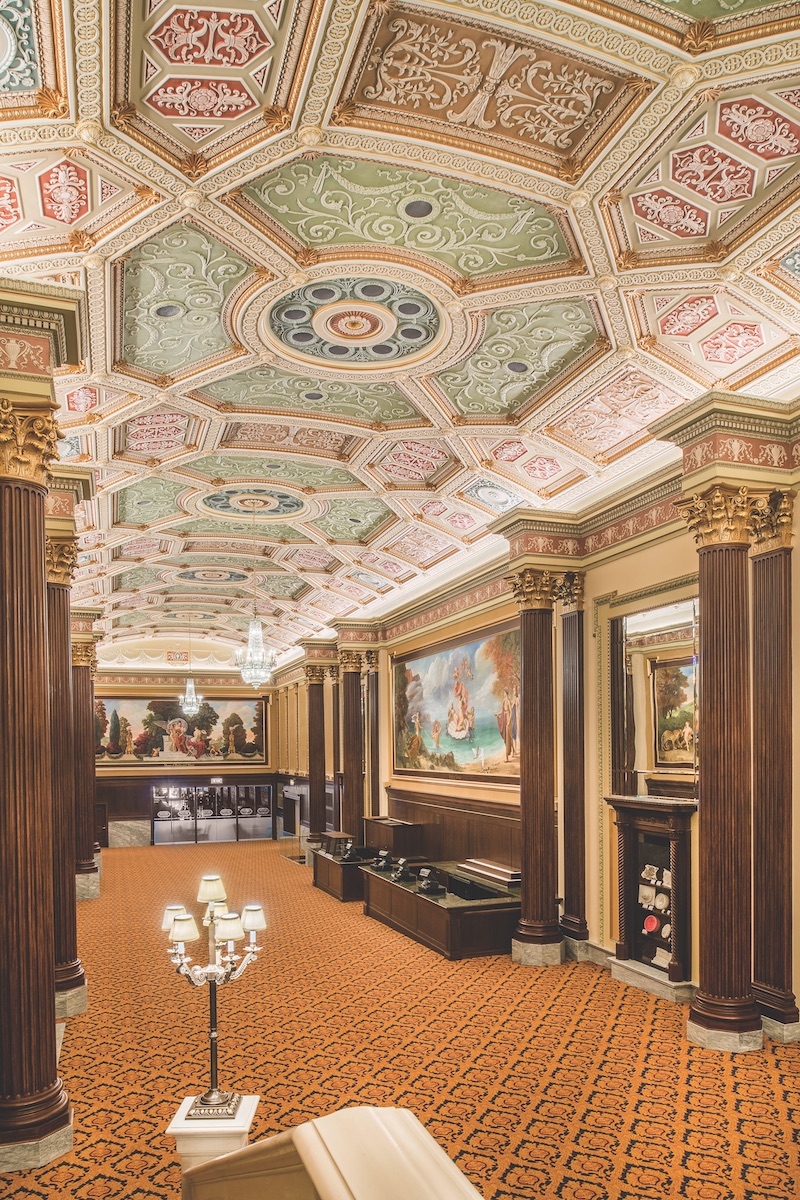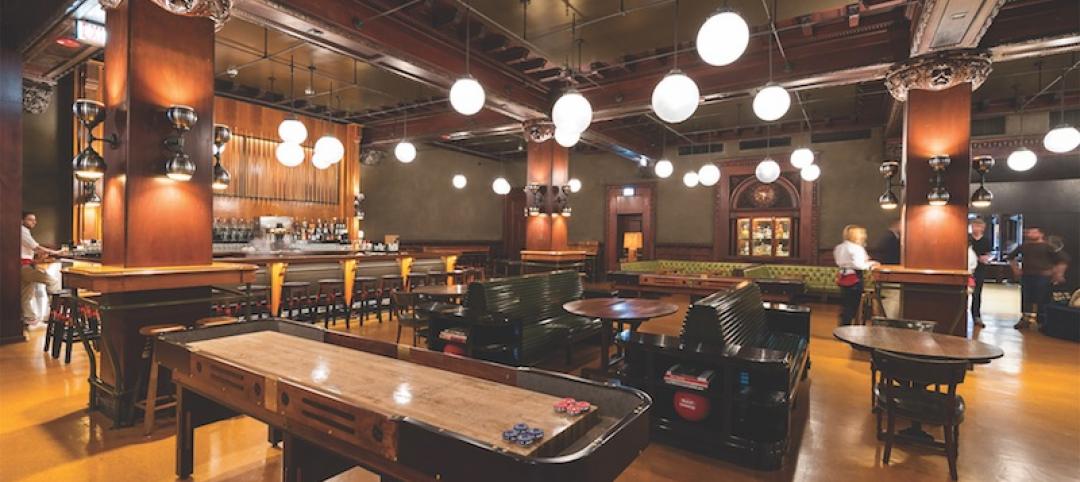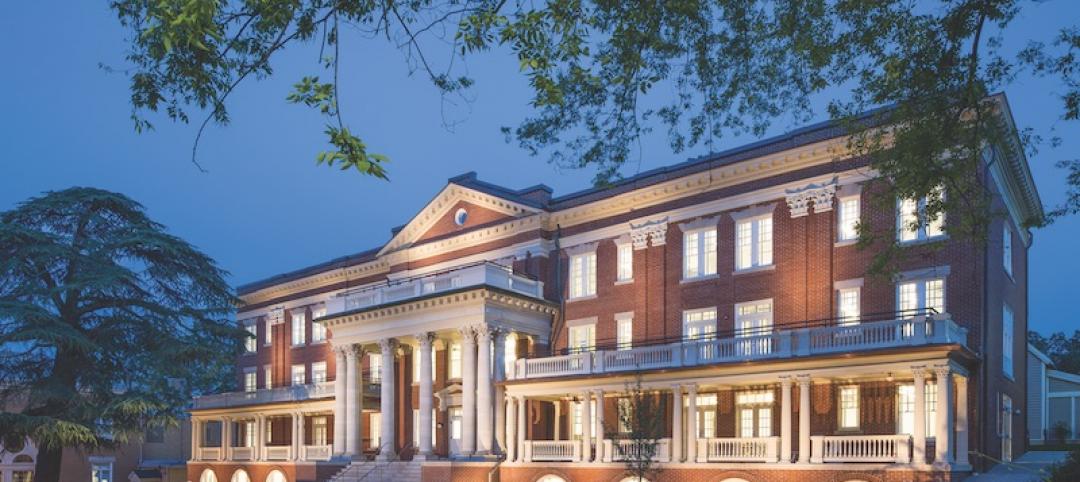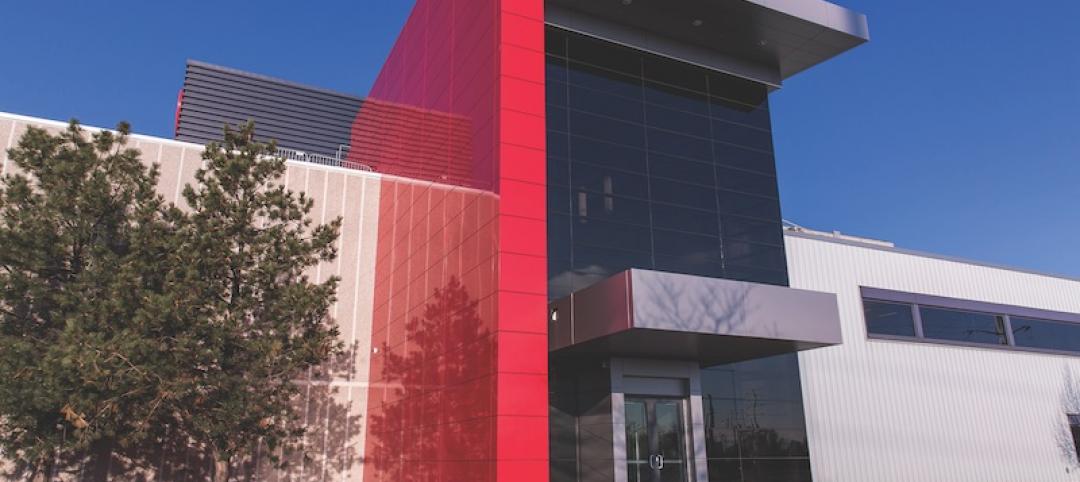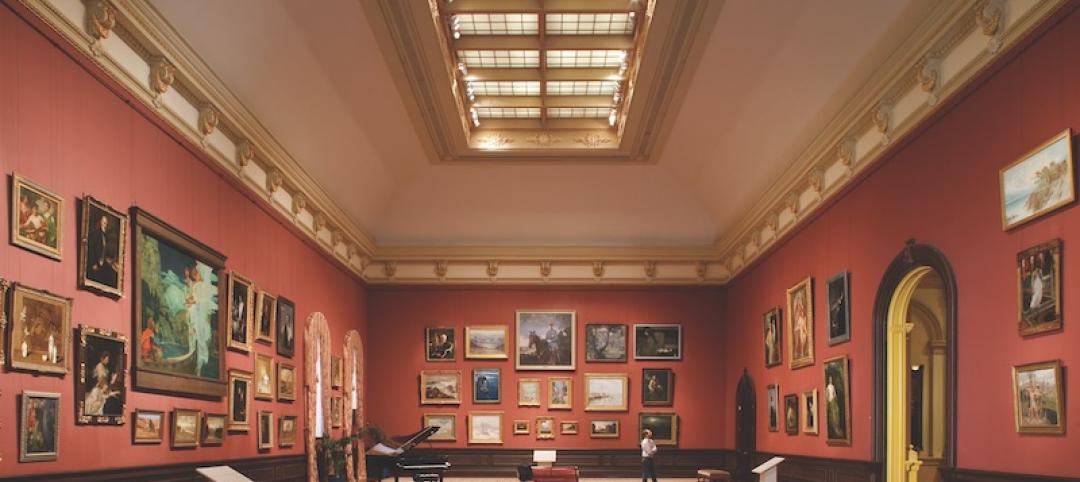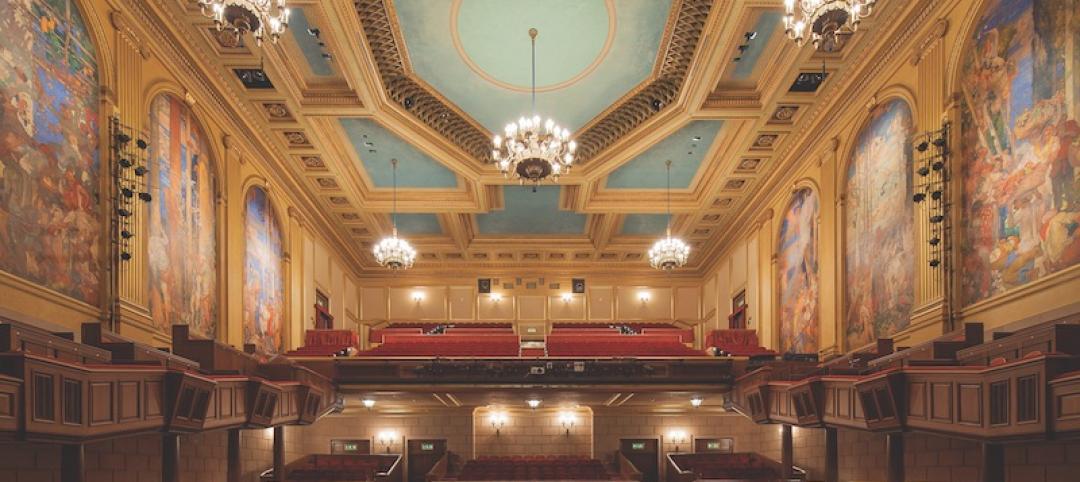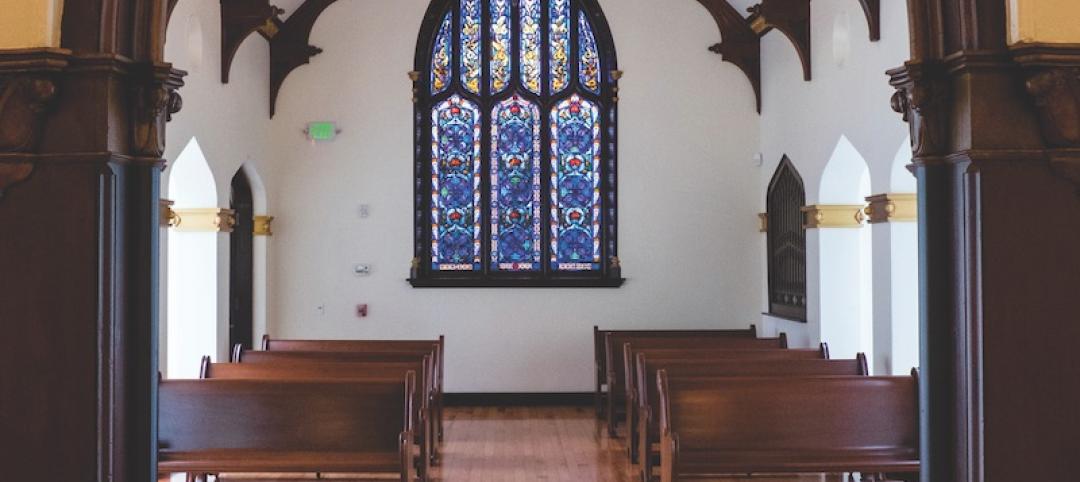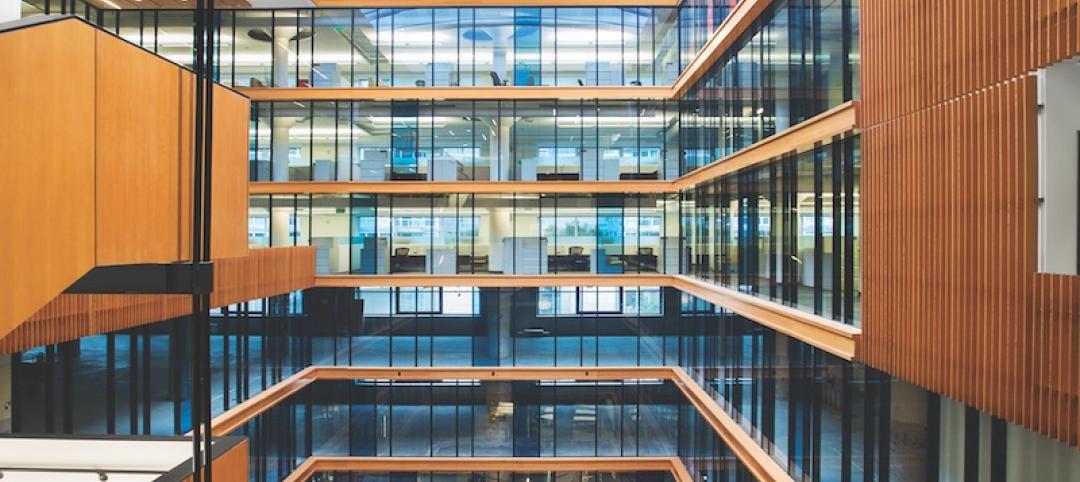The Ohio Theatre, which opened in 1921, is one of four historic theaters in Cleveland’s Playhouse Square, the largest renovated theater district in the U.S. A fire destroyed the Ohio in 1964, and its latest reconstruction rectifies some incompatible remodeling of the past to restore the theater’s lobby to its prior grandeur.
The restoration relied heavily on historic photos and drawings (archived at Columbia University) by the theater’s original designer, Thomas Lamb.
The project team created a coloration and design rendering of the lobby by overlaying a historic black-and-white image. Historic photos helped recreate the pattern of the original carpet, as well as three of the original 30x10-foot murals that mimicked the style of French baroque artist Nicolas Poussin. Photos were used to determine the original height of the balustrade, which needed to be raised and reconfigured to meet current code.
The centerpiece of the restoration is the lobby’s 150-foot-long ceiling. The Building Team went with a light-gauge ceiling system suspended from the roof structure. Attached to the bottom of the framing is a layer of continuous sheet metal blocking, to which large ornamental plater panels were screwed and glued.
The team, led by architect DLR Group | Westlake Reed Leskosky, used 2D drawings overlaid with clay, high-res images, and a small section of charred plaster cornice that survived the fire to reproduce the molds for the ceiling’s plaster ornamentation. HVAC diffusers and a new fire sprinkler system were integrated into the design.
The project team for owner/developer Playhouse Square had to work around elements that weren’t original to the lobby, like the house manager’s office and a staircase that leads to the Kennedy Cabaret Theatre. The restoration introduced new elements, too, such as a family/ADA-compliant restroom and new concession areas.
Project Summary
Gold Award Winner
Building Team: DLR Group | Westlake Reed Leskosky (submitting firm, architect, MEP, SE, IT/telecomms, lighting) The Coniglio Company (site manager) EverGreene Architectural Arts (owner consultant) Turner Construction Co. (CM).
Details: 7,500 sf. Construction cost: $6.3 million. Construction time: July 2015 to May 2016. Delivery method: CM.
See all of the 2017 Reconstruction Award winners here
Related Stories
Reconstruction Awards | Nov 16, 2016
BD+C's 2016 Reconstruction Award Winners
St. Patrick’s Cathedral, Lovejoy Wharf, and the Bay Area Metro Center are just a few of the projects recognized as 2016 Reconstruction Award winners.
Reconstruction Awards | Nov 16, 2016
Reconstruction Awards: The Renwick Gallery of The Smithsonian American Art Museum
The renovation restored two long-concealed vaulted ceilings in the second-floor galleries and recreated the original 19th-century window configuration.
Reconstruction Awards | Nov 16, 2016
Reconstruction Awards: Massachusetts Maritime Academy
The two-story “overbuild” employed block and plank construction with drag strut detailing to connect it to the existing building.
Reconstruction Awards | Nov 16, 2016
Reconstruction Awards: The Masonic Temple
The building team suspended a new eighth-floor mezzanine and added 18 9x15-foot windows to the north, south, and west façades.
Reconstruction Awards | Nov 16, 2016
Reconstruction Awards: San Francisco War Memorial Veterans Building
The building team used a system of rocking concrete shear walls, which eliminated the need for deep foundations and reduced the shear force on each wall.
Reconstruction Awards | Nov 16, 2016
Reconstruction Awards: Arc at Old Colony
The Arc at Old Colony's vintage floor plans, voluminous lobby, and myriad elevators were perfect for redevelopment as a historically charming residential building.
Reconstruction Awards | Nov 16, 2016
Reconstruction Awards: Noble Chapel
In May 2013 the 124-year-old Noble Chapel, suffered a three-alarm fire that almost completely destroyed its 1937 crematorium.
Reconstruction Awards | Nov 16, 2016
Reconstruction Awards: Bay Area Metro Center
The structure’s 60,000-sf floor plates made the interior dark and foreboding, and BAHA wanted to improve working conditions for its employees and tenants.


